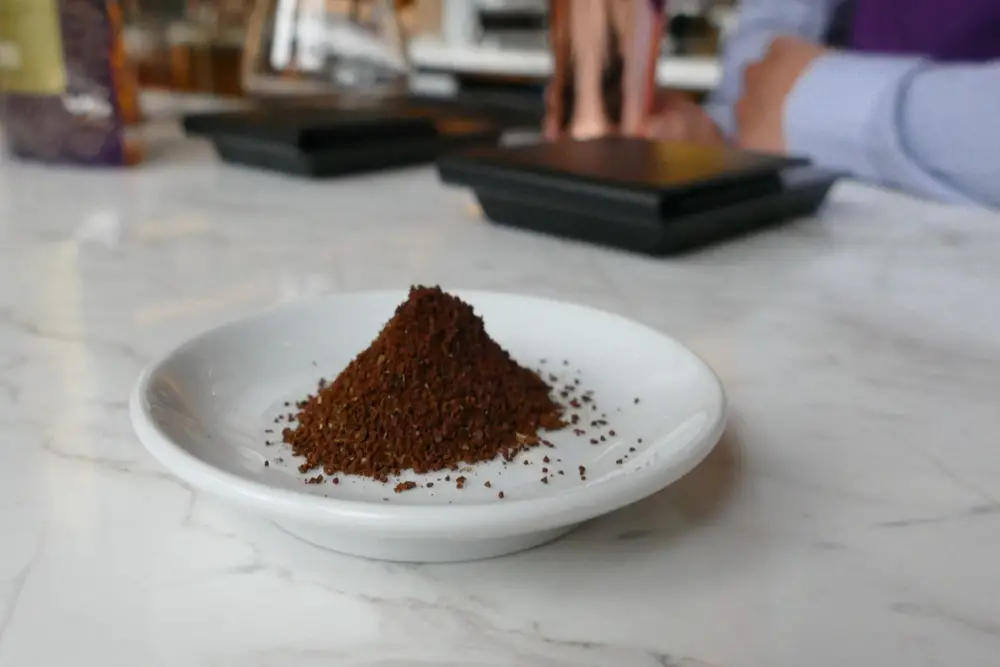Urine is a fluid produced by the kidneys to help eliminate waste from the blood.
But even if the urine has a characteristic smell, which in some cases can be changed by certain diseases, the aroma can also be changed by taking certain foods or medicines.
And coffee is one of the foods that can change the smell of our urine.
Table of Contents
Why does urine smell like coffee?
While there are a variety of reasons why the smell of urine can change, if your urine starts smelling like coffee, it’s probably because you’re simply drinking too much of it.
Coffee contains various compounds such as polyphenols that not only provide various health benefits but also give the drink a distinctive smell.
When these compounds are then broken down in the body, they are converted into waste products called metabolites, some of which are excreted in the urine.
These metabolites make urine smell like coffee.
In addition, coffee is largely made up of caffeine, a substance that, in addition to its central nervous system stimulant effects, is also considered a mild diuretic.
This means that the caffeine found in coffee has the ability to cause more urination.
So, if you drink large amounts of coffee, you may experience mild dehydration. When this happens, your urine may become more concentrated, making the odor of the metabolites more noticeable.
Therefore, to avoid excessive urination due to excessive coffee consumption, you can follow the recommendations of the Mayo Clinic or the WHO.
Both institutions recommend limiting daily caffeine consumption to 400 milligrams, which is the equivalent of 4 medium cups of black coffee.
However, if you’re one of those people who consume a large amount of caffeine on a daily basis (whether it’s from coffee, tea, or medication), make sure you stay hydrated and include water, fruits, and vegetables.
How do I know if I’m drinking too much coffee?
Like other substances, too much caffeine can lead to poisoning in the body.
So, it’s possible to overdose on caffeine, although it’s not common.
However, you should be alert if you notice any of the following symptoms after consuming large amounts of caffeine (even if you think it’s not a lot).
They can indicate that you are indeed suffering from an overdose:
- Chronic headaches (several days, weeks or even months)
- Constant insomnia
- Irritability
- Confusion or disorientation
- Tremors
- Sudden chest pains
- Palpitations (tachycardia)
- Shortness of breath
- Hallucinations
- Cramps
You should see a doctor as soon as possible if this applies to you.
This will prevent your urine from smelling like coffee
The most obvious recommendation is to reduce the amount of caffeine consumed each day.
However, if you are one of those individuals who consume high amounts of caffeine, abruptly reducing caffeine intake is not a good idea as it can lead to caffeine withdrawal, which is not ideal.
Therefore, if you want to reduce caffeine intake, it is best to do it gradually, i.e. “step by step”.
Gradually decrease the amount of coffee you drink per day.
Assuming you drink 8 cups of coffee a day (which is quite a lot), cutting back on 1 cup of coffee a day can help.
So that you consume 7 cups of coffee per day for the first week. In the second week you can then reduce the number to 6 cups.
Continue in this manner until you have reached the recommended dose, i.e. a maximum of 4 cups per day.
Drinking water
If you drink less coffee, you can increase your water consumption at the same time. This will keep you hydrated and the smell of coffee will disappear from your urine.
On the other hand, the water is also used to prepare/dilute coffee.
This allows you to drink your coffee the way you like it while reducing the concentration of caffeine in the cup.
This is certainly not desirable, especially if you’re a coffee purist, but it can help you reduce your caffeine intake.
Try substituting coffee
Relax, we’re not suggesting you give up coffee altogether (we wouldn’t dare).
Just pointing out that you could replace some of the cups of coffee you no longer drink with green tea, black tea, or one of these 8 caffeinated alternatives.
Taking advantage of cortisol spikes
Try to wait at least 30-60 minutes after waking up before consuming caffeine.
That’s because during this time, the body naturally releases cortisol, also known as the stress hormone, which helps the body wake up.
So, the idea is to drink your first coffee of the day when your blood cortisol levels are high, so you need less caffeine.
Please note
Everyone is different, so some people can smell the coffee in their urine after just one cup.
Other people, on the other hand, only smell the coffee in their urine after a large number of cups.
When your body is dehydrated, you will smell coffee in your urine no matter how much you drink.
“But I don’t drink coffee and my urine still smells funny.”
You may notice a strange odor in your urine and even associate it with the aroma of coffee, but most likely one of the following is responsible.
Urinary tract infection
Urinary tract infections are characterized by changes in the color, density, and smell of the urine.
Urinary tract infections can also lead to increased frequency of urination, which means you feel like you need to go to the bathroom more often.
If this is the case for you, you should see a doctor and seek treatment.
Bladder fistula
A fistula is an abnormal connection between two parts of the body, usually an abnormal connection with the intestine in the case of the bladder.
This is serious because there is a possibility of bacterial superinfection, meaning bacteria from the gut make their way into the bladder, the organ that stores urine before it exits through the urethra.
Therefore, when the urine leaves the body, it can be contaminated and cause a foul odor.
Liver disease
Liver disease can also cause urine to have a strong odor. So, if you experience any of these symptoms:
- Jaundice (yellowing of the skin and eyes)
- Dark colored urine
- Vomit
- Weight loss (without exercise or diet)
- chronic abdominal bloating,
please see a doctor.
Phenylketonuria
Phenylketonuria is a genetic condition in which the body is unable to break down the amino acid phenylalanine.
If metabolites from the failed breakdown process then leak into the urine, they can cause a musky odor in the urine.
If this disease is diagnosed in young children, it should be treated immediately as it can trigger problems such as: e.g.:
- Mental disability
- Delayed social behavior
- Decreased pigmentation of the skin
Diabetes
Diabetes can also cause the urine to take on a strange odor.
In fact, it has been known for millennia that untreated diabetics have a fruity odor in their urine and breath.
For example, in diabetes, the body cannot use the glucose in the blood because the cells are typically resistant to insulin (which brings glucose into the cells).
Since the body lacks the necessary fuel (glucose), it breaks down fat for energy.
This produces chemicals called ketones that have a fruity odor and are excreted in the urine, hence the characteristic sweet smell.
Pregnancy
When women become pregnant, their bodies produce a hormone called human chorionic gonadotropin; this hormone can change and increase the smell of urine.
Also, women are thought to have a keener sense of smell than men, so they may be able to better detect subtle changes in smell.
In addition, when a pregnant woman is dehydrated, uric acid can build up in her body, which can lead to a strong sulfuric odor in her urine.
Some foods change the smell of urine
Asparagus is known to make urine smell bad. However, some people can eat this vegetable without changing the smell of their urine.
Because everyone digests their food differently. Some people lack the enzyme that breaks down asparagus or other foods.
So, when they eat this vegetable, the smell of their urine doesn’t change, while those who have the enzyme produce something called sulfur metabolites that make their urine smell like sulfur or ammonia.
Other foods, such as Brussels sprouts, onions, garlic, curry, salmon, and alcohol, can also have similar effects.
Fungal infection
Yeasts are microorganisms that naturally live in various parts of the body, including the vagina.
But sometimes these fungi overgrow and cause vaginal infections.
The problem with this is that in women, the urethra is very close to the vaginal opening, so the urine can pick up the odor of the nearby infection.
However, as with UTIs, the change in smell is accompanied by other symptoms, such as: e.g.:
- Burning when urinating
- Increased frequency of urination
- redness of the area
- Swelling of the vagina and vulva
- Thick, whitish discharge
Sexually Transmitted Infections
Some of these diseases can cause inflammation of the urethra (urethritis).
The inflammation can then be accompanied by bacteria, pus or bleeding, which can change the smell of the urine.
Thus, among other diseases, chlamydia and gonorrhea are the most common causes of urethritis.
But even if one of these diseases does not cause urethritis, the urine can take on an odor due to irritation in the vagina.
Kidney stones
Kidney stones are often the cause of a change in the smell of urine.
These particles form when salt and other minerals in urine stick together to form hard, stone-like deposits.
Stones can be as small as sand-like grains or as large as a medium-sized stone.
Bacteria can build up in the kidney stones and cause infection or sometimes bleeding. The point is that both can change the smell of urine.
The change in the smell of urine, in turn, is accompanied by symptoms, such as:
- Pain in the back, side of the chest, or groin
- Nausea
- Vomit
- Frequent urination
- blood in the urine
- Painful urination
- Fever
However, remember that kidney stones are never simply the cause of smelly urine as they are always accompanied by some of the symptoms mentioned above.
Vitamins
Some people notice that their urine smells different after taking vitamins.
In general, this is the same as with food intake, ie the change in urine odor is usually temporary and harmless.
Most likely, the change in the smell of urine is due to an excess of vitamins in the body, which can be corrected with one or more trips to the toilet.
In summary
While an odd smell in urine can be alarming, it doesn’t necessarily mean there’s something wrong with your body.
However, if you notice that you are experiencing other (albeit minor) symptoms in addition to the change in the smell of urine, you should see your GP as soon as possible.
Always remember to drink enough fluids and eat a balanced diet.




